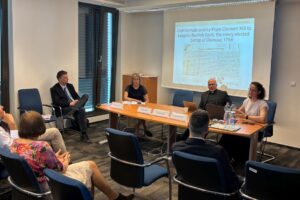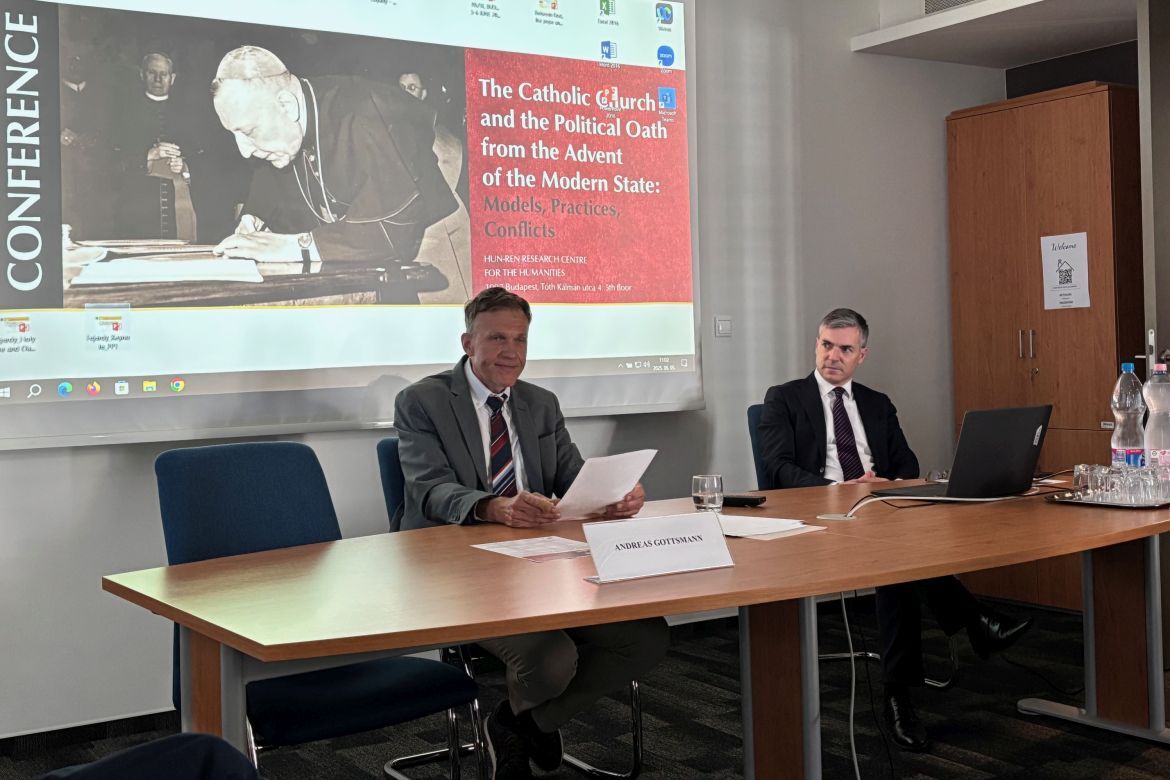For the first time since the project began in 2022, members of the ERC “Negotiating Sovereignty” research team organized a major international conference on June 5-6, 2025 in Budapest, at HUN-REN Research Centre for the Humanities, Institute of History. The event both showcased state-of-the-art research on the political oath of the Catholic clergy and initiated a dialogue on the meaning and importance of the political oath with leading historians and law scholars from Europe and North America. Papers presented at the conference cover state-church relations from the advent of the modern state at the end of the 18th century until 1990. The proceedings are planned to be published in an edited volume, as part of the series Central and Eastern Europe by Brill Academic Publishers.
The two keynote lectures of the conference were given by Andreas Gottsmann, the director of the Austrian Historical Institute in Rome, and András Fejérdy, the principal investigator of the ERC research group and deputy director of HUN-REN RCH Institute of History. Andreas Gottsmann offered an overview of the changes in the attitude of the (high) clergy towards the state under different regimes of the Josephinist state church (Staatskirchentum) and the constitutional era afterwards. In his speech, András Fejérdy sketched a comparative framework of the clergy’s political oath after 1918 under nationalist and trans-nationalist regimes in Central and Eastern Europe.
During these two days, papers analyzing various aspects of the oath of allegiance were presented and commented on by András Forgó, Nadia Kizenko, Éva Petrás, Pál Hatos, Ágnes Hesz, and Szilvia Köbel. Several papers reflected on state-church relations during the “long 19th century”. Whereas the presentations of Katalin Pataki and Miklós Tömöry contextualized the introduction and the changes of the bishop’s oath in the Habsburg Empire, contributions by Roberto Regoli, Tomasz Hen–Konarski and Siegfried Weichlein offered a comparative European analysis of the topic. The papers of Scott Kenworthy, Željko Oset, Przemysław Pazik and Agáta Šústová Drelová reflected on the post-imperial transitions and the positions of the Catholic and Orthodox clergy in Soviet Russia, Yugoslavia, Poland and Czechoslovakia respectively. Bernd Schaefer, Emília Hrabovec, Anca Şincan, and Jan Hlebowicz analyzed the claim of loyalty of the church by the Third Reich, the GDR, as well as by Socialist Czechoslovakia, Romania and Poland.

Pictures by Kinga Szőcs-Rajkó.
